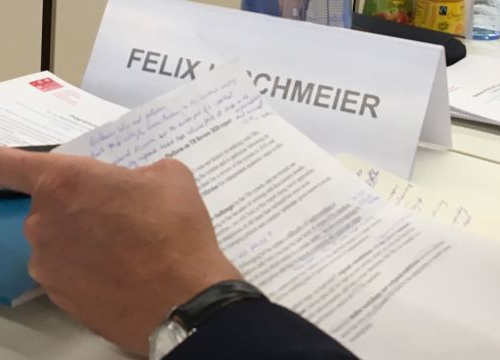Our Publication on the Reform of UN Treaty Bodies Presented at the EU Working Party on Human Rights


Geneva Academy
25 September 2018
The two coordinators of the Academic Platform on Treaty Body Review 2020, Felix Kirchmeier and Kamelia Kemileva, presented our publication ‘Optimizing the UN Treaty Bodies System’ at an informal meeting of the European Union (EU) Working Party on Human Rights (COHOM).
At this meeting, held in Vienna under the auspices of the EU’s Austrian Presidency, they shared with human rights experts from capitals and EU diplomats the main findings and recommendations entailed in the publications and discussed the UN treaty bodies strengthening process.
‘It’s a great opportunity for us to share the conclusions of a three-year consultative process with the body that handles all human rights aspects of EU’s external relations and that supports the EU Council's decision-making process in this area’ stresses Kamelia Kemileva.
‘Diplomats welcomed our independent approach, grounded in academic research and free from vested interests and institutional limitations, and recognized its key contribution to the 2020 process’ underlines Felix Kirchmeier.

About the Geneva Human Rights Platform
The Academic Platform on Treaty Body Review 2020 forms part of the Geneva Human Rights Platform (HRP).
The HRP provides a neutral and dynamic forum of interaction in Geneva for all stakeholders in the field of human rights – experts, practitioners, diplomats and civil society – to discuss and debate topical issues and challenges. Relying on academic research and findings, it works to enable various actors to be better connected, break silos, and, hence, advance human rights.








